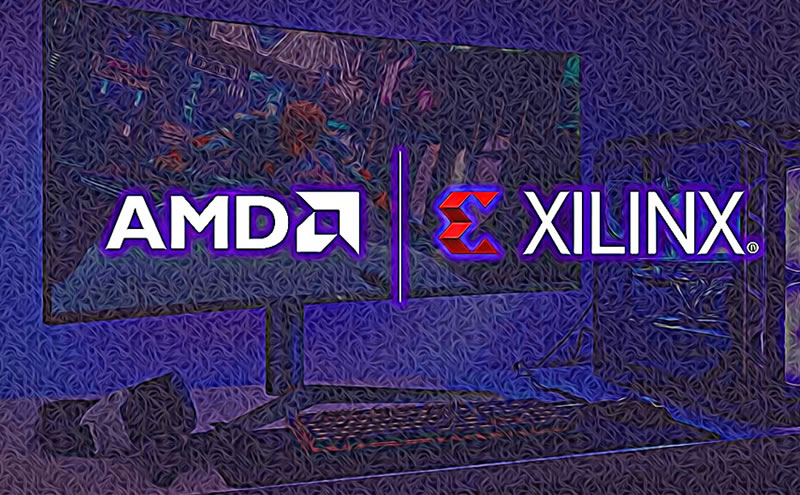The way has been cleared for an unarguably record-setting deal in the global semiconductor industry. On Thursday, Chinese regulators granted Advanced Micro Devices Inc. (NASDAQ: AMD) approval to buy Xilinx Inc. (NASDAQ: XLNX) for $35 billion.
The State Administration for Market Regulation gave AMD and Xilinx some conditions. For example, it asked them not to discriminate against Chinese clients and not discontinue the supply of Xilinx products to the country. It also determined the deal could exclude or limit competition. However, the U.S., U.K, and European regulators have already given their blessings to the deal.
AMD (NASDAQ: AMD) had already made the market aware of its interest in Xilinx in 2020. AMD made it clear then that they were redoubling their efforts to have a competitive advantage over Intel Corp (NASDAQ: INTC) and Nvidia Corp (NASDAQ: NVDA) in manufacturing chips for computers and graphics processors. After China’s regulators announced the approval, Xilinx’s shares gained 6%, while AMD's rose slightly.
This deal would assuage fears that China would resist mega-mergers in the semiconductor industry. This is because semiconductor technologies and supplies are now treated as a national security issue. This was more notable post-Covid when a poignant deficit of the sensitive microelectronics affected the car industry and made post-Covid economic recoveries very difficult.
This week it was reported that Nvidia Corp was about to abandon purchasing British Chip company Arm Ltd from the SoftBank Group Corp due to regulatory backlash and the lack of progress in the deal. The $40 billion deal was being stalled due to concerns about national security in the U.K.
Developed countries like the U.S, China, and Japan are now racing to develop national chip technologies and domestic production chains. They envision a scenario where there could be another semiconductor crunch and its effect on their economies. Also, growing political tensions has become a driver for the non-approval of chip deals between Washington and Beijing. Each side believes the other could gain a geopolitical technology advantage if they approved such deals. This was the major reason Qualcomm Inc. had to scrape its $44 billion bid for NXP Semiconductors NV, a rival chipmaker, in 2018.
Minor deals have already come under regulatory searchlights amid national security concerns. For example, China’s Wise Road Capital had no option but to terminate its $1.4 billion bid for South Korean chipmaker MagnaChip Semiconductor Corp. in 2021 because the Committee for Foreign Investment in the United States believed it would compromise U.S national security.
What Will AMD Gain From The Deal?
As earlier said, AMD is hotly in competition with Intel Corp. and NVidia Corp for the semiconductor market. Intel is arguably a giant in semiconductors, and AMD is until recently turning the tables. This deal would make it possible for them to challenge Intel for market share. Also, it will allow AMD to expand vertically. For example, it would take AMD into sectors like automotive and communications networking and serve as a booster for its efforts in providing cloud data center components. This sector has proved very lucrative recently.
In 2020, while telling investors about the deal, AMD CEO Lisa Su said that the deal “provides lots of benefits to AMD, including expanding our AI portfolio and leadership in adaptive computing. It would further diversify our customer base into complementary markets.”

















Rate this article